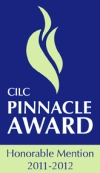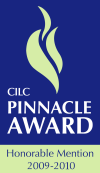Over the past decade social media has changed how individuals connect online and share information and how organizations interact with stakeholders and customers. Did you know that social media is now being incorporated into learning programs from Kindergarten right on up through adult education? Does it really add any value to the learning process?
In this one-hour webinar, I’ll share exactly how I incorporated social media (and in particular, Twitter) into one of my classes. I’ll share what worked, what didn’t and what you can do in your own teaching or training practice to effectively integrate social media ‐ and why you might want to.
By the end of the webinar you will:
• Have a basic understanding of how social media can add value to your learning programs
• Gain insight into how to incorporate social media into a lesson plan
• Get ideas on how to assess activities using social media
• Get ideas on how to incorporate social media into your own learning programs
There will be time for questions at the end of the webinar.
This free webinar is sponsored by Essential Skills Ontario. Here are the details:
Date: Tuesday, August 21st, 2012
Time:
10:00 a.m. Pacific Time (Vancouver, BC)
11:00 a.m. Mountain Time (Calgary, AB)
1:00 p.m. Eastern Time (Toronto, ON)
2:00 p.m. – Atlantic Time (Halifax, NS)
6:00 p.m. – British Summer Time (London U.K.)
7:00 p.m. – Eastern European Time (Cairo, Egypt)
It’s free for you to join in, but you must register, since there are only 100 spots available. Click here to register.
__________________
Share or Tweet this post: Free webinar: Learning the 21st century way: Making sense of how to use social media for learning http://wp.me/pNAh3-1tB
Update – January 2018 – This blog has had over 1.8 million views thanks to readers like you. If you enjoyed this post, please “like” it or share it on social media. Thanks!
Sarah Elaine Eaton is a faculty member in the Werklund School of Education, University of Calgary, Canada.



 Posted by Sarah Elaine Eaton, Ph.D.
Posted by Sarah Elaine Eaton, Ph.D.  The Guardian recently published an article called “
The Guardian recently published an article called “





You must be logged in to post a comment.